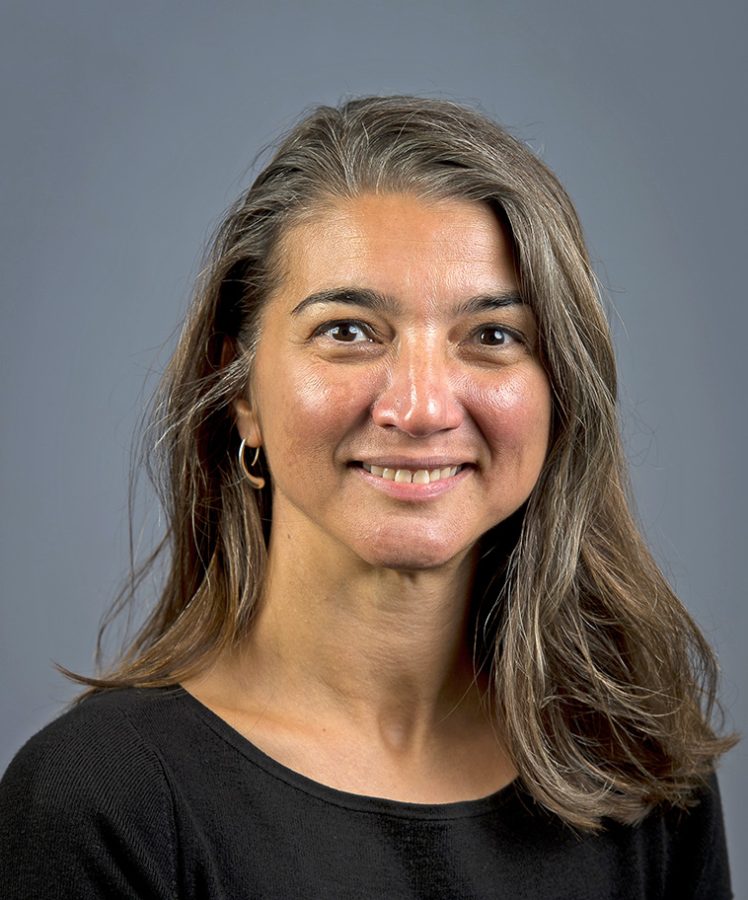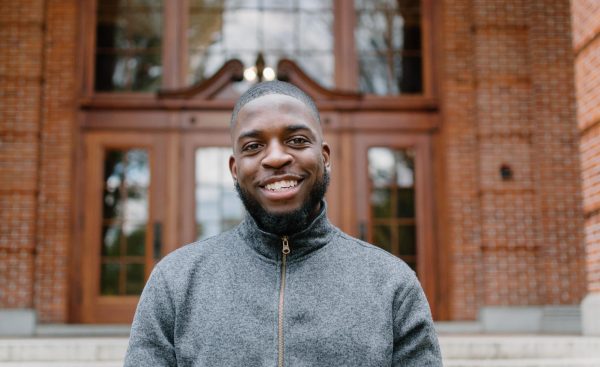New CEOAS dean sets the stage for OSU scientists
April 10, 2023
As a young girl, Tuba Özkan-Haller said she was afraid of water. Even with a father serving as admiral in the Turkish navy and being born in Istanbul — surrounded by the Sea of Marmara and the Black Sea — she refused to learn how to swim.
“When they took me to the beach I remember keeping my boots on, because I knew my dad wouldn’t toss me in the water with my boots,” Özkan-Haller said.
Eventually, she learned how to swim. With guidance from her father, she became comfortable around water by learning more about it and maintaining a respect for it.
On March 13, she became the new dean of the College of Earth, Ocean and Atmospheric Sciences at Oregon State University.
With a drive for inclusivity, engaging communities and keeping people safe around water by keeping them knowledgeable, Özkan-Haller plans to set the stage for OSU scientists to maximize their impact in the science world.
The work from Özkan-Haller focuses on the nearshore ocean and waves, which according to her, are a major driver of long term change to coastlines and of acute damage to cities and towns during storms.
Her research includes studies on water hazards such as sneaker waves and rip currents. Since 1966, her work has garnered over 2,000 citations.
“If we know how they work, if we can predict them and if we have people understand what to do if they’re caught in one, we can really save lives,” Özkan-Haller said.
Sneaker waves are sudden surges of water that have enough force to sweep people off their feet or pin them against something. In an interview with Oregon Public Broadcasting, Özkan-Haller said sneaker waves cause two to four deaths along the Oregon Coast each year.
Rip currents are a localized current that flows away from the shoreline toward the ocean, which have enough power to pull people out to sea–even the strongest swimmers.
Coming from an egalitarian family, Özkan-Haller received her family’s full support when she decided to study civil engineering in college. She received her bachelor’s, master’s and doctorate degrees all in the same field.
According to Özkan-Haller, there weren’t very many women in engineering where she studied at Boğaziçi University and the University of Delaware.
“I did have one math professor who was a woman who was an excellent, excellent teacher. I remember thinking: ‘That’s how I want to be…that’s the kind of teacher I want to be,’” Özkan-Haller said.
Özkan-Haller thinks it’s extremely important for people to see professors who look like themselves because it gives them the ability to imagine. She still remembers the face of her undergraduate math professor.
In 2014, Özkan-Haller was named co-principal investigator for OSU’s ADVANCE program, funded by the National Science Foundation, which aimed at increasing the participation of women in science and engineering careers.
Özkan-Haller has been working at OSU for 22 years, initially as an associate professor. She remembered her first six years here being tough, on top of wanting to participate in various projects and having two children–she admitted to facing extreme burnout.
“I was clinically depressed a few years in,” Özkan-Haller said. “I was very good at keeping up a facade, but inside I was not in a good place.”
During that time, Özkan-Haller even contemplated leaving academia. It took her a while to seek help, therapeutically and medically. According to her, once she got help and got out of that “hole” the world looked different.
Now when she notices herself getting overwhelmed or too close to burnout, she steps away and takes a day off. Or she’ll make time in her schedule to do things that make her happy, like facilitating “ignite sessions.”
“Ignite sessions” are one-hour events where people are allowed to speak freely for two minutes about a certain topic, like for instance, water. According to Özkan-Haller, these sessions re-energize and remind her why she’s doing the work she’s doing.
Özkan-Haller’s first faculty position was at the University of Michigan, however, ocean science — Özkan-Haller’s main interest–wasn’t as prominent there as it is at OSU. Currently, OSU ranks third in the world for their oceanography program.
“(OSU) is the kind of place where I think my work really could accelerate,” Özkan-Haller said. “I still have to pinch myself. This is a dream job.”
As someone who grew up in Turkey, Özkan-Haller never imagined having a career and family in the US, she said she still has to pinch herself. Her first time in North America was when she visited to interview and tour with graduate schools.
She had an internship in Prague, still considered Czechoslovakia at the time, the summer after the Velvet Revolution–a non-violent transition of power from communist rule–which inspired her to be more brave.
Her advice for women and people of color desiring a science, technology, engineering or math career is to be themselves, be authentic and a little stubborn.
















































































































